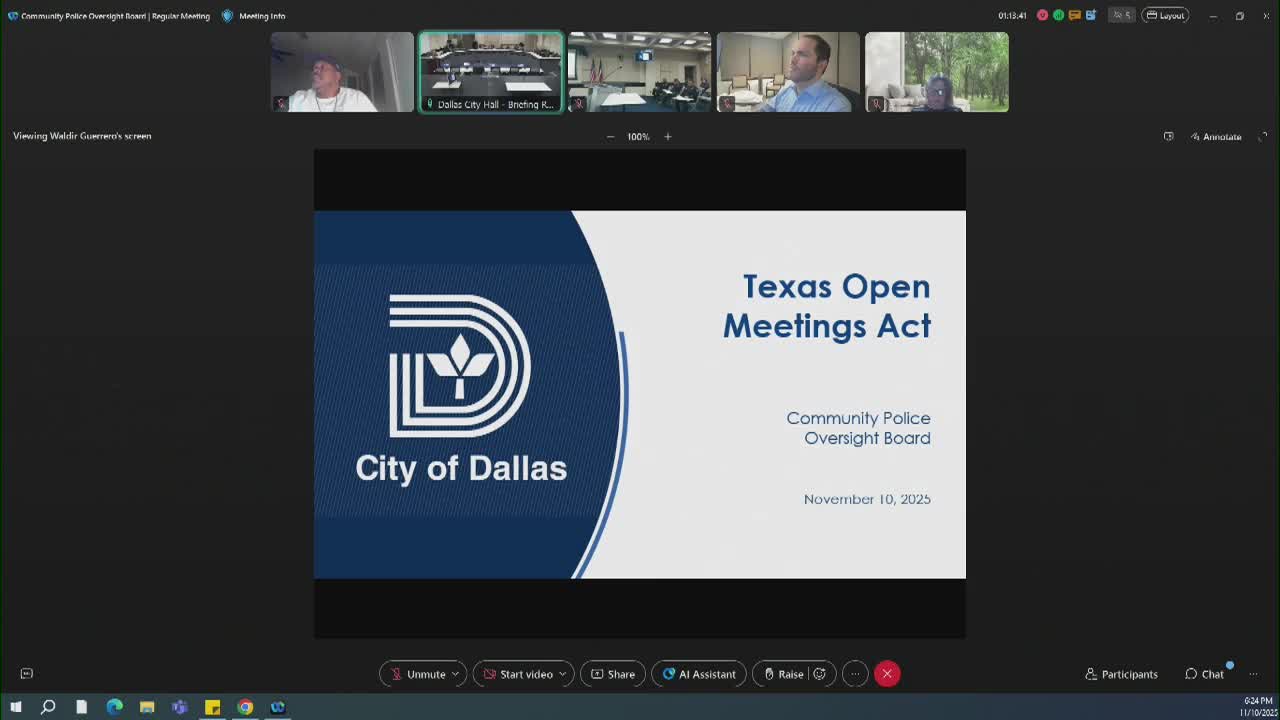City attorney briefs board on Texas Open Meetings Act and city-code limits on abstentions
Get AI-powered insights, summaries, and transcripts
Subscribe
Summary
Assistant City Attorney Daniel Moore reviewed TOMA requirements for notice, walking quorums, hybrid meetings and closed sessions and explained that Dallas city code (chapter 8) constrains board members to follow the city attorney’s advice unless overturned by a court.
Assistant City Attorney Daniel Moore presented a step-by-step briefing on the Texas Open Meetings Act to the Community Police Oversight Board on Nov. 10, explaining when a gathering becomes a ‘meeting,’ how notice requirements work, and what limits apply to board interaction with the public during open-microphone comment.
Moore told the board notice must now be posted three business days before a meeting and reminded members that deliberation by a quorum (including written communications that amount to deliberation) constitutes a meeting under TOMA. He described walking quorums as a series of communications that, in effect, transmit deliberations among enough members to reach a quorum and warned against that practice.
The attorney also explained hybrid-meeting rules: if board members participate remotely by video they must be visible and audible, and board members lacking video/microphone access should be treated as absent for that portion of the meeting. He stressed that responses to public speakers in open comment are limited to factual information and that items not on the posted agenda should not be debated in open session but may be placed on a future agenda for discussion.
Board members asked practical questions: whether leaving the room counts as being absent (yes, for quorum purposes), whether members can abstain from votes (chapter 8 of the Dallas city code construes absence as an affirmative vote in certain circumstances and generally limits abstentions), and who ultimately decides whether agenda language is sufficiently specific (courts may determine sufficiency in litigation; the city attorney gives formal advice for the city to follow).
Why it matters: The briefing clarified legal risks and procedural limits that affect how the board frames agendas, asks questions of invited officials and conducts quasi-judicial oversight. Board members asked for follow-up analysis specific to a prior incident in which questions were limited by agenda language; Moore agreed to provide additional guidance to the board.
What’s next: The board and Moore agreed to follow-up guidance on the legal exposure and remedies that apply if members ignore city-attorney advice, and staff will work with the city attorney to craft clearer agendas where public interest requires more specificity.
